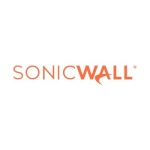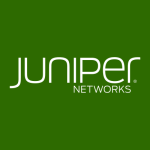What is our primary use case?
I use the solution in my company since we operate as a managed services provider that provides security solutions to our customers. I was looking for a device that had the required features my customer wanted, and that fit their budget, so Netgate pfSense is a product that clearly fits this space. Our company has started to deploy the tool for our customers.
How has it helped my organization?
In terms of the benefits of the tool for my organization, I am not an end user of the product. My customers use the tool, and what they have been able to achieve using Netgate pfSense is that they are better able to control their spending on internet services. Without Netgate pfSense, users can just take up the whole bandwidth from the network and make it difficult for other people to work, but with the bandwidth control feature, including the built-in functionalities in the solution, you can control what individual IP addresses on the network can do, thereby bringing in more control. My customers have even told their other MSPs how they need to increase their bandwidth, whereas what they needed to do was just control what they already had in Netgate pfSense. Controlling the bandwidth has brought savings to my customers, and it also helped them to have a better user experience with the internet services that they were purchasing.
What is most valuable?
The solution's most valuable feature is that it is a highly configurable tool. The tool has a lot of options, so there is literally nothing you cannot do with it, but you have to know your way around the product.
The problems my company's clients wanted to resolve by implementing Netgate pfSense were that they wanted a provision for enterprise network security, static control over load balancing, and failover. This area is typically the use case for our customers.
If I assess Netgate pfSense's flexibility, I would say that it is a highly configurable tool, which means there are many options. It has a lot of flexibility in terms of configuration. You can write different rule sets for different traffic types and scenarios. On the same firewall, you could have lots of variety in how you want to handle traffic.
If I want to add features to Netgate pfSense, I would say that because the structure is modular, there is an app store where you can download whatever feature sets you want but are not included by default in the tool. The tool also supports many third-party plug-ins. It is possible to add features to the tool.
Netgate pfSense provides a single pane of glass for management with a customizable dashboard. You can customize the dashboard. Any handy modules you want are possible on a dashboard with a single-view window where you can see what is going on, and it is customizable.
The single pane of glass management feature has an impact on operations since it simplifies management because, typically, my company is not on the customers' premises, so we need to have remote access to the firewall. The people who are doing the back-end monitoring have a single view, which makes operations easy because, with one single glance, you can tell if there is a challenge or not in the tool.
Netgate pfSense Plus is what came on the device that my customers purchased by default.
In terms of whether Netgate pfSense Plus helps minimize downtime, I would say that the main difference between Netgate pfSense and Netgate pfSense Plus is the availability of enterprise support. When I have issues or bugs, I have someone to go to and say that something is not working and ask what we can do about it, after which I can get a response. When it comes to Netgate pfSense and Netgate pfSense Plus, the software is almost the same. One of the versions comes with enterprise backing, so I have some support and OEM support instead of relying on the community. I have a proper company I could talk to about any challenges my customers and I may have. The support does help reduce the downtime. I haven't actually had any downtime with the tool on my customers' end. I haven't had any downtime using the tool.
In terms of whether Netgate pfSense provides visibility that enables my company's clients or me to make data-driven decisions if we don't speak of specific use cases, I would say that it is typically a next-generation firewall that does bandwidth control and provides IPS and IDS features. For instance, if my customers wanted to have an idea of how much internet traffic they are using, then Netgate pfSense would give you graphs that you can export and do further analysis. I don't think the tool's use cases are tied to data or data analysis.
What needs improvement?
I can’t get any area where improvements are needed in the tool off the top of my head. I haven't had any challenges I couldn't resolve between myself and the support. Maybe Netgate needs to see if a medium-level Netgate pfSense Plus can be created for smaller organizations.
Most of what I need is already in the tool. If there is any need associated with it, I will be sure to report it to the support team.
Buyer's Guide
Netgate pfSense
January 2026
Learn what your peers think about Netgate pfSense. Get advice and tips from experienced pros sharing their opinions. Updated: January 2026.
881,733 professionals have used our research since 2012.
For how long have I used the solution?
I have been using Netgate pfSense for two and a half years. My company serves as an MSP for Netgate pfSense.
What do I think about the stability of the solution?
The only area to consider is that sometimes when there is an upgrade, there may be some changes. But when you have uploaded a stable version of the firmware, the operating system, I think it is a very stable tool. I have not had any issues around stability. Stability-wise, I rate the solution a seven out of ten.
What do I think about the scalability of the solution?
I deal with clients in areas such as residential, government organizations, and medium-scale businesses. I have one customer in each category, which includes small, medium, and large businesses.
Normally, when it comes to the size of hardware before you make a purchase, due diligence is required to see that the device would be able to handle the current requirements and have some room for growth. With the solution itself, I don't see the need to discuss questions related to its scalability because that would be a function of the hardware and the size of the network where you are deploying the tool. Typically, if you have a huge network, you need to make sure that you have the equipment that can handle that volume of traffic from the on-site. The scalability aspect is not really a good assessment criterion to use to measure the tool. If I put things into a certain context and say that we have a network that has around 100 people, then you don't put up a device that can manage 100 people. Instead, you need to get a device that can manage 150 to 200 people, and then you can create room for growth. If you don't follow these steps, you will have to change the device after some time.
How are customer service and support?
The solution's technical support team is okay. They respond quickly. I have only had the need to place two support calls in all of my dealings so far, and they were able to figure out my issues and resolve them very quickly. I rate the technical support a seven to eight out of ten.
How would you rate customer service and support?
Which solution did I use previously and why did I switch?
In our company, we typically deploy a mix of security products that we prefer. At our organization, we have Sophos, Fortinet, and Netgate pfSense. Sophos, Fortinet, and Netgate pfSense are pretty standard. Netgate pfSense has all of the features that Sophos and Fortinet have, but what is more, it can be used without having to have separate licensing. Netgate pfSense really beats the other tools hands down in terms of price because there are no individual license costs for the features that you want to use. In Sophos, certain features require separate licensing. Netgate pfSense's advantages over other tools in price make it a top choice over the others. In our company, we have some customers who are particular about products, and for such customers, we provide them with what they request. For those who don't mind trying something different, Netgate pfSense is our default choice.
How was the initial setup?
The product's initial setup phase is straightforward. The complexities in the deployment are produced by customers who do not know exactly what they want. Some customers have requirements, and my company needs to sit with them and streamline certain areas. The integration and the configuration are not the challenges associated with the tool.
The solution is deployed on an on-premises model.
Typically, if all the configuration information is available, the tool can be deployed in a maximum of two to three days. One can have the standard installation done. The deployment procedure can be done assuming one day for the configuration and the second day for rack mounting. The process is quick when the customer has all of the information they want configured in hand. For some of them, the tool is typically deployed over a period of a few weeks because they don't know or have not decided how they want to implement a particular feature. Still, it would not be a delay from Netgate pfSense's end but rather a delay from the customer side.
What's my experience with pricing, setup cost, and licensing?
I would not call it a cheap tool, but it is very cost-efficient. I don't see any product that gives you the same functionality within the same price brackets offered by Netgate pfSense. There is hardly any need to go to the open-source firewalls, especially with the ones that are coming back, and there are no enterprise security products in the price range that Netgate pfSense falls under.
If I assess the total cost of ownership of Netgate pfSense, I rate it as an eight or nine out of ten.
What other advice do I have?
I don't use Netgate pfSense Plus on Amazon EC2 VMs, and I haven't had a customer who wanted to deploy the tool on the cloud. Most of them purchase and install their hardware directly from Netgate.
The maintenance of the tool's equipment is done once or twice a year just to blow out some dust and make sure it looks physically okay, which is nothing outside of what the regular network devices require. It doesn't require any special maintenance.
I would recommend Netgate pfSense because it is one of the products that my company markets to our customers.
As I have existing customers that use the solution, they serve as a reference point for my new customer. I tell others that I have deployed Netgate pfSense in a few official organizations, their use, and the problems that it has solved for them. I have case studies to speak about. If someone wants to go for a proof of concept, it is something that is doable.
I rate the tool an eight out of ten.
Which deployment model are you using for this solution?
On-premises
Disclosure: PeerSpot contacted the reviewer to collect the review and to validate authenticity. The reviewer was referred by the vendor, but the review is not subject to editing or approval by the vendor. The reviewer's company has a business relationship with this vendor other than being a customer: MSP


















